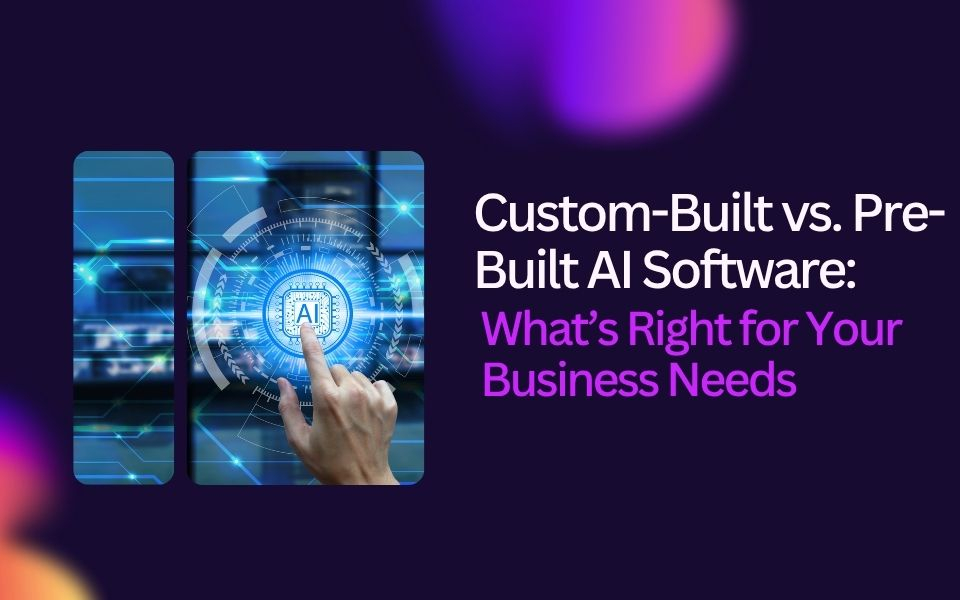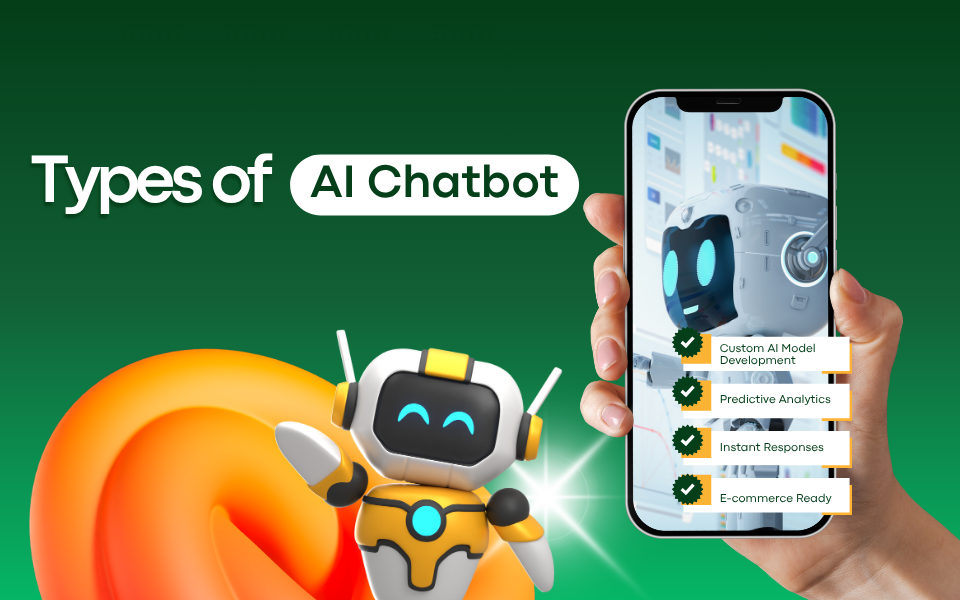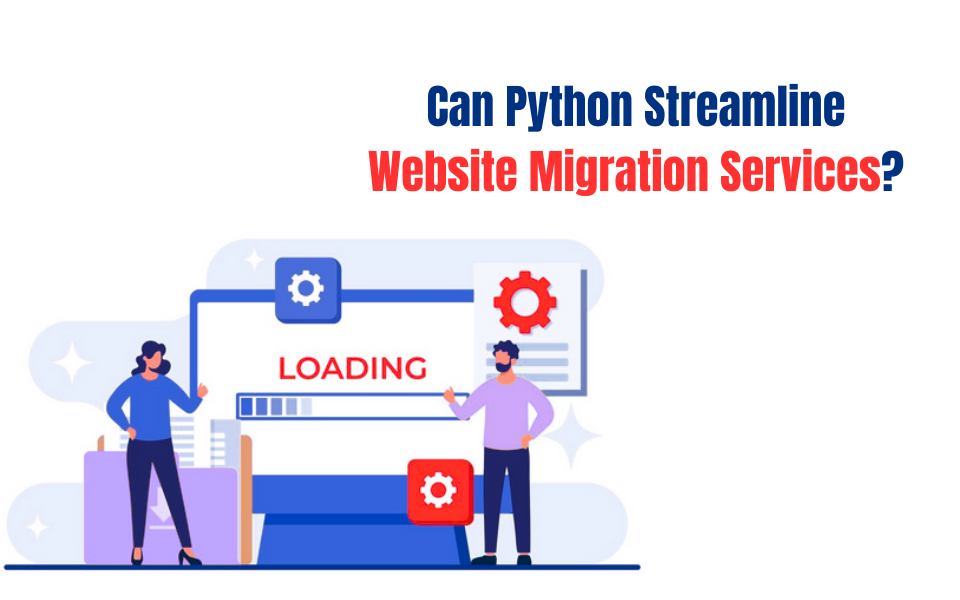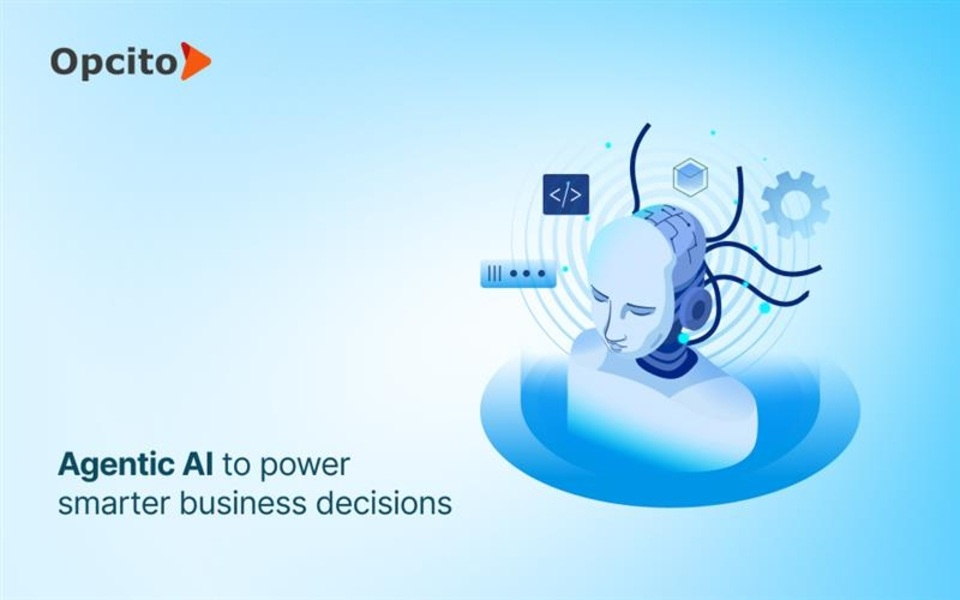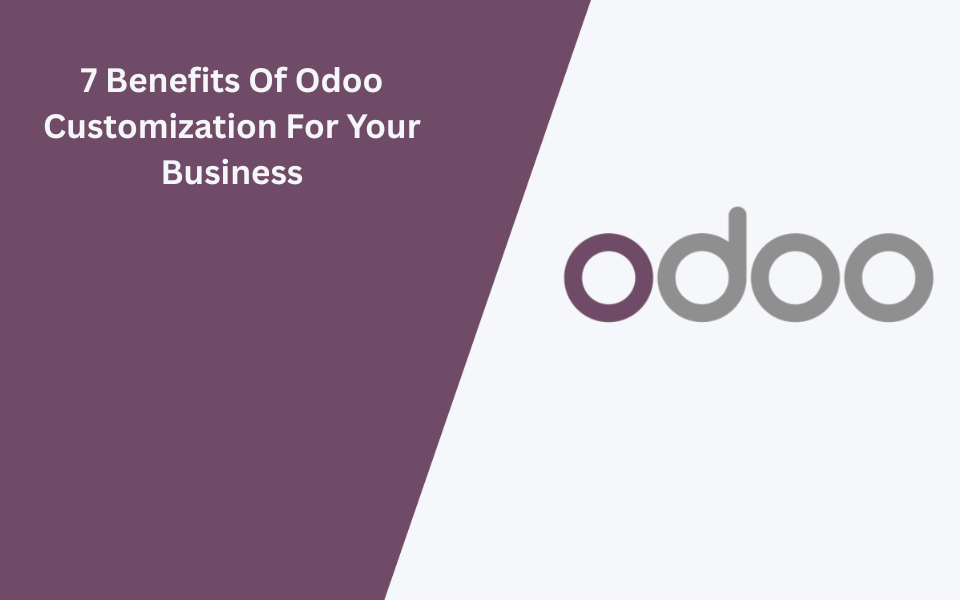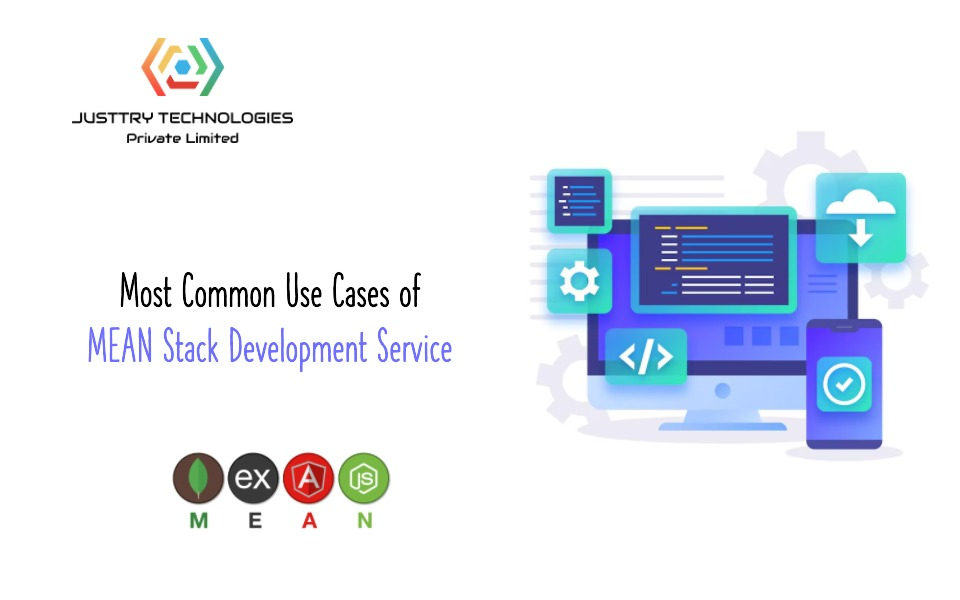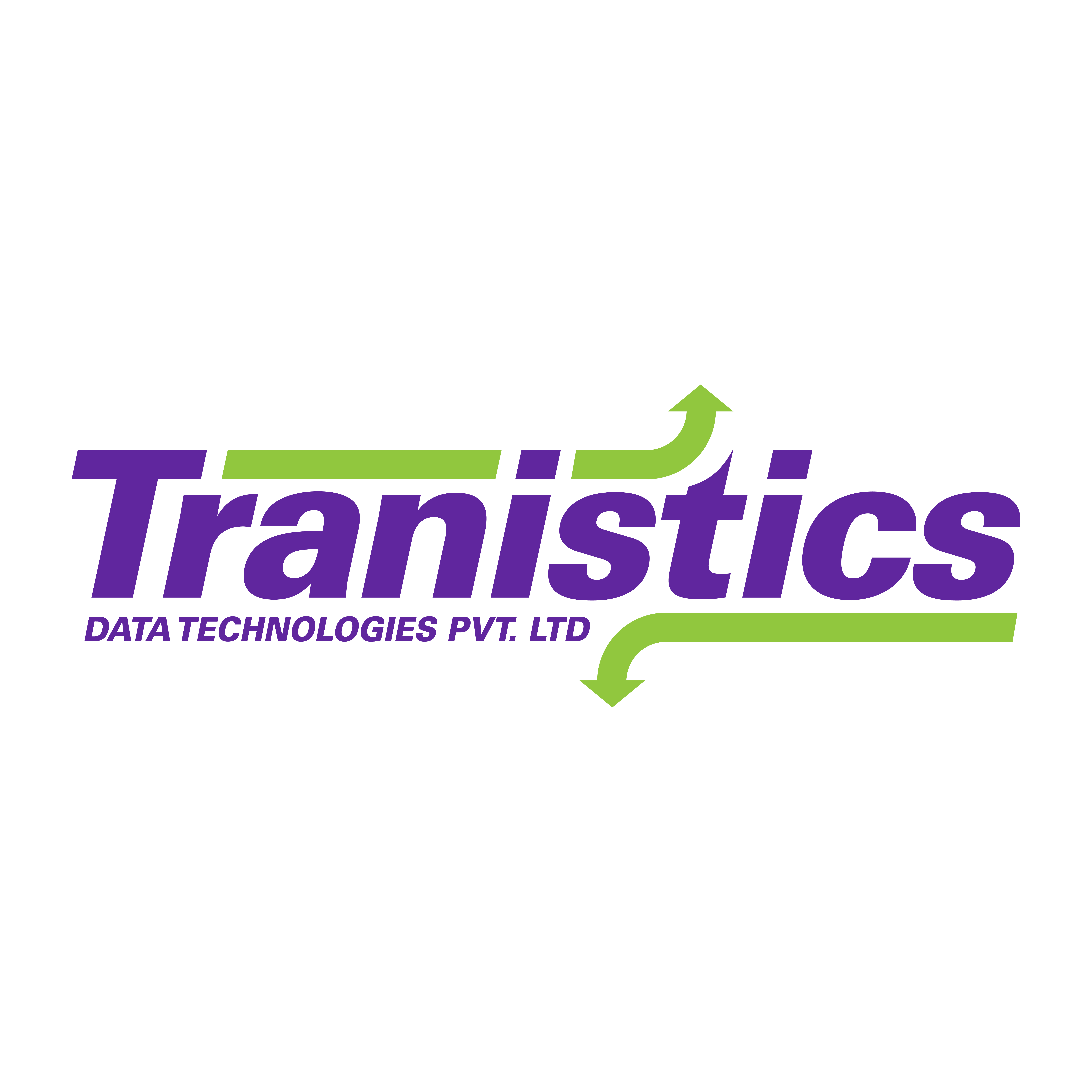Technology is no longer just a support function. It's a core part of how businesses operate and compete. From customer service to supply chain management, intelligent systems are reshaping the landscape.
For many businesses, the question isn’t whether to use advanced software—it’s what kind to use. That’s where the decision between custom-built and pre-built AI software comes in.
One offers control, flexibility, and a tailored fit. The other brings speed, simplicity, and proven frameworks.
Choosing the right path can have a lasting impact on efficiency, innovation, and return on investment. But it’s not always clear which direction is best.
This article breaks down the pros, cons, and key considerations. Whether you're a founder looking to move fast or an enterprise leader building long-term capability, you'll walk away with clarity on what suits your business needs.
Custom-Built vs. Pre-Built AI Software: A Clear Look at the Fundamentals
Before diving into comparisons, it's essential to understand what each option actually offers.
What Is Custom-Built AI Software?
This is software created from the ground up for a specific company. It's designed around the exact way that business works—its processes, goals, and challenges.
You decide how it functions. You control how it integrates with other tools. You own the way it grows with your business.
It’s not built to serve everyone. It’s built to serve you.
What Is Pre-Built AI Software?
This type of software is designed to solve common problems for many businesses at once. It’s packaged, tested, and ready to go. No need to wait months for development.
It usually comes with a fixed set of features. It may offer some configuration options. But in most cases, it’s built with general use cases in mind—not your specific one.
Think of it as a plug-and-play tool that gets the job done fast, with minimal setup.
Custom-Built vs. Pre-Built AI Software: Key Differences That Matter
Once you understand what each type of software is, the next step is comparing how they perform in real-world business scenarios. Here’s how custom-built and pre-built AI tools stack up across the areas that count.
1. Cost: Upfront vs. Long-Term
Custom-built systems typically require a higher initial investment. You’re paying for design, development, and testing tailored to your business. But over time, this investment can pay off—especially if it improves productivity or reduces dependency on third-party tools.
Pre-built tools come with lower upfront costs. You usually pay a subscription or licensing fee. It’s easier on the budget in the short term, but those recurring costs can add up, especially if you need to add new users or features later.
2. Speed of Deployment
Need something running in a matter of days? Pre-built software wins here. It’s designed for quick onboarding and fast results.
Custom-built software takes longer. It involves research, planning, development, and testing. It’s not for businesses in a hurry, but it may be worth the wait if the goal is long-term efficiency.
3. Flexibility and Customization
Custom-built systems adapt to how you work. If your team has unique workflows, this approach makes sure the software fits them—not the other way around.
With pre-built tools, you usually work within the limits of what’s offered. Some tools allow minor tweaks, but deep customization is rarely part of the package.
4. Scalability Over Time
Custom-built software can grow with you. You can add features, change logic, or even pivot entirely as your business evolves.
Pre-built platforms might not scale easily. If your needs grow beyond what the vendor offers, you could be stuck—or forced to migrate to something new later.
5. Ongoing Maintenance and Support
With custom software, maintenance is in your hands. That can mean more control, but also more responsibility. You’ll need internal tech support or a reliable development partner.
Pre-built solutions come with vendor support. Updates, bug fixes, and new features are managed for you. That saves time but limits your control.
When to Choose Custom-Built or Pre-Built AI Software: Real-World Use Cases
The right software depends on what you're trying to solve. Let’s look at specific situations where one approach clearly makes more sense than the other.
Custom-Built AI Software: Best for Unique Problems and Long-Term Vision
If your company relies on a process that’s unlike what most others use, a custom solution fits best. It wraps around how you work instead of forcing you to adapt.
Examples:
Custom-built is also the better choice when software becomes a core part of your competitive edge. You’re not just solving a problem—you’re creating something that others can’t easily replicate.
Pre-Built AI Software: Ideal for Speed and Simplicity
Sometimes, you don’t need a perfect fit—you just need something that works now. Pre-built tools shine when your needs are common and time is tight.
Examples:
In these cases, the out-of-the-box features cover most of what you need. You get value right away without waiting for months of development.
Pre-Built vs. Custom AI Software: What Different Industries Should Consider
No two industries use software the same way. The challenges, regulations, and user expectations all influence whether a custom-built or pre-built AI solution fits best.
Healthcare: Precision and Compliance Matter
Healthcare organizations deal with sensitive data and strict regulations. A generic tool might check some boxes, but it often lacks the flexibility needed for HIPAA compliance, patient-specific logic, or integration with internal medical systems.
Why Custom Often Wins:
Custom AI can be built to match the exact workflow of a hospital, clinic, or insurer. Whether it’s processing diagnostics or managing patient interactions, precision and control are non-negotiable.
Retail: Speed and Customer Experience Lead
In retail, it's all about understanding buyer behavior and reacting quickly. Many pre-built tools offer plug-and-play solutions for things like product recommendations, inventory forecasts, and customer segmentation.
Why Pre-Built Often Wins:
Retailers benefit from quick implementation. Pre-built AI tools let them act on trends without delay. And because customer data is fairly consistent across companies, generic models often perform well out of the box.
Finance: Risk Control and Custom Models Are Key
Financial firms deal with large volumes of sensitive, high-stakes data. While some generic tools offer fraud detection and portfolio analysis, the stakes often require more control and model transparency.
Why Custom Often Wins:
A custom-built AI system can reflect your internal risk thresholds, compliance protocols, and specific customer behavior patterns. It’s built not just for accuracy, but for auditability.
Manufacturing: Optimization at Scale
Manufacturers rely on complex systems—supply chains, machinery, quality control—all interacting in real-time. Some pre-built tools offer basic predictive maintenance and planning.
Why It Depends:
For basic monitoring or scheduling, pre-built works. But if you're optimizing multiple plants, integrating legacy equipment, or using proprietary production flows, a custom-built AI platform will be a better fit.
How to Decide Between Custom-Built and Pre-Built AI Software?
It’s tempting to pick the fastest or cheapest option. But the right software choice starts with asking the right questions. Here’s a simple way to think it through.
1. What Problem Are You Trying to Solve?
Start with clarity. Is it a widespread issue, like automating emails or analyzing sales trends? Or is it something unique to how your business runs?
If the problem is niche, chances are a custom solution will give you a better fit. If it’s common, a pre-built tool may cover your needs.
2. How Urgent Is the Solution?
Some problems can wait. Others can’t.
If your team needs a tool next week, custom development isn’t the way. But if you're investing in a system that supports future growth, taking time to build it right could save you trouble later.
3. What Resources Do You Have?
Custom software needs time, technical guidance, and budget. Not just for development—but also for long-term support.
Pre-built tools require less upfront effort. You’ll still need a team to manage the rollout and training, but it won’t stretch your resources as much.
4. How Much Will Your Needs Change Over Time?
A tool that fits today might not work tomorrow.
If your business is growing fast, or your needs are evolving, custom solutions offer more room to pivot. If your core processes are stable, a pre-built tool could work for the long haul.
5. Do You Want to Own the Software or Just Use It?
Ownership comes with control, flexibility, and responsibility. That’s what you get with custom software.
Pre-built platforms let you operate without the weight of full ownership—but also without full freedom to shape the tool as your business changes.
Conclusion: Choosing the Right AI Path for Your Business
There’s no universal answer when it comes to picking between custom-built and pre-built AI software. What works for one business may hold another back.
Custom-built solutions shine when flexibility, control, and deep integration matter. They’re often the better route for companies that view AI development as a long-term strategic investment.
Pre-built tools, on the other hand, offer speed, simplicity, and proven reliability. For businesses that need quick wins or lack the internal resources to manage a custom build, these tools can deliver real value fast.
Both options have a place. The right choice depends on your business goals, available resources, and how critical AI is to your core operations.




